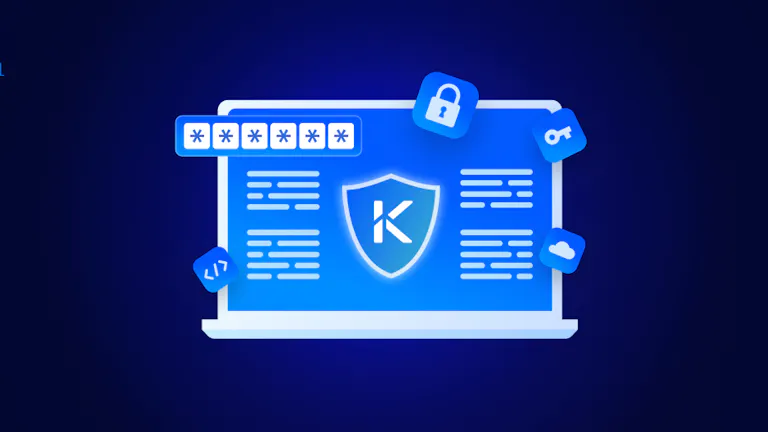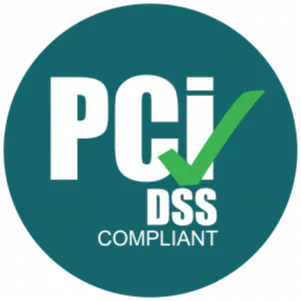Posted by Joyce Ling
March 30, 2023
As an engineer, you might be wondering about the best way to handle secrets within your team. It can be common for teams to share secrets through Excel sheets or by copy-pasting from a local file. Although these methods can work in the short term, they leave you vulnerable to hackers.
It pays to make sure secrets management is in place properly. For example, the consequences of a breach due to stolen or compromised credentials is $150,000 more than the average data breach. This surpasses the cost of other types of breaches, like cloud misconfiguration or social engineering tactics.
Considering a proper secrets management system will not only benefit the company’s bottom line but will also save time in your day-to-day work as a DevOps engineer.
So, let’s explore the benefits of secrets management and how it can improve your work life. In this article, we’ll talk about five reasons why you need a secrets management platform now.
1. Secrets become difficult to manage as your infrastructure grows.
There are numerous ways you can expect your organization’s infrastructure to grow, such as:
- Adding new services and applications
- Creating distributed systems for handling increased traffic and load
- Integrating with third-party services or applications
As organizations grow their infrastructure, they often need to create new secrets to manage authentication, authorization, and security across their systems and services.
As an engineer, this can exponentially increase the amount of secrets that you need to manage and secure. If secrets are sprawled throughout your infrastructure, it can make it difficult to not only troubleshoot issues, but manage who has access to what, unnecessarily increasing the exposure and risks for breaches. This leads us to our next point: what happens if and when breaches happen.
2. Breaches get shut down faster with effective secrets management.
During breaches, a malicious attacker may initially gain access to less sensitive information. Using that access, they may try to gain access to additional systems or networks, often with the goal of escalating privileges and gaining access to more sensitive data or resources. Recent high-profile breaches at Uber and LastPass, for example, were made significantly worse due to lateral movement by a hacker.
Secrets management can make it significantly harder for a hacker to move laterally and gain access to critical assets.
Aspects of secrets management to focus on include:
- Having the ability to track how and when secrets are used
- Frequently rotating secrets
- Eliminating long-standing access
- Limiting access to those who need it, when they need it
Properly handling secrets can not only reduce risk of breaches, but mitigate the damage if a breach occurs.
3. Hard-coding leads to unnecessary risk and poor access control.
Whether you hard-code secrets and push them to a private repository, or you hard-code secrets and remove them before committing code, both approaches can be unnecessarily risky.
Git is easily misconfigured, and secrets in a private repository can accidentally be leaked via a developer’s personal repository (which is, by default, public).
Storing secrets in a repository also lacks access control. Unless you have different repositories to manage a different set of permissions, everyone who has access to a repository will also have access to the same secrets.
With secrets being exposed unnecessarily, hard-coding increases the risk of breaches, lateral movement, and insider threat.
Resource: You have other options besides hard-coding, and you can get started with them now—learn more about how to implement effective secrets management without going down a rabbit hole or wasting time.
4. You get more control over your permissions.
Using a proper secrets management platform can make it easy to control who gets access to what.
Role-based access control is one method of control for delegating access. It enables administrators to assign permissions to roles rather than to individual users. For example, you might not want to give a junior developer write access to production environments, but you may want to give them read access for troubleshooting. Using role-based access control, you can assign a junior developer a different role than a senior architect.
Having more fine-grained access means employees won’t have access to everything. Certain secrets management platforms may allow you to give temporary access so access doesn’t have to be removed manually, reducing attack surface and mitigating risk.
5. Spend less time managing secrets.
1 in 4 DevOps and IT professionals say that managing secrets is the worst part of their workday, and nearly 40% of IT/DevOps workers spend 30 minutes or more a day on average managing enterprise secrets.
If you fall in this category, then it’s worthwhile to implement secrets management systems and tools that make your day better and your job easier. Instead of spending hours of your week manually rotating secrets or encrypting them, look for tools that can automate this process. Use tools that are easy to implement, don’t require lots of maintenance, and make it easier to collaborate with distributed teams.
Overall, using tools that reduce the time spent on secrets management can benefit you and the organization by increasing productivity and improving collaboration. Not to mention, effectively managing secrets also keeps your name out of the headlines 😉
At the end of the day, secrets management is crucial. With infrastructure growing & secrets piling up, securing and managing them is tough. Storing secrets in repos or hard-coding can lead to risks and breaches. Using a secrets management platform eases control, reduces risk & saves time.
Are you effectively implementing secrets management? Learn about the four principles of rock solid secrets management, what to avoid, and how to level up your existing processes. Don’t risk a costly data breach—download our free e-book today.
















